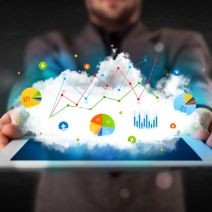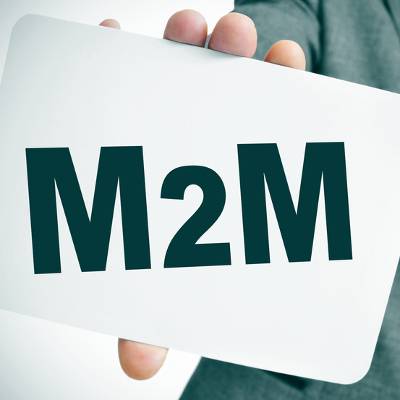Have any question?
Text or Call (954) 573-1300
Text or Call (954) 573-1300
 There was a time when the cloud was considered nothing more than a novelty, but now that most serious businesses are taking full advantage of cloud computing, it’s time that you consider it a viable option for your organization. For those who are unfamiliar with cloud computing, though, you want to make sure that you properly plan out the process of moving to the cloud. When it comes to remodeling your IT infrastructure around the cloud, doing so can save you a lot of pain.
There was a time when the cloud was considered nothing more than a novelty, but now that most serious businesses are taking full advantage of cloud computing, it’s time that you consider it a viable option for your organization. For those who are unfamiliar with cloud computing, though, you want to make sure that you properly plan out the process of moving to the cloud. When it comes to remodeling your IT infrastructure around the cloud, doing so can save you a lot of pain.
 Your business’s desktop infrastructure is an imperative part of operations, but thanks to the latest virtualization technology, there are easier ways to manage multiple desktops. For example, you can take advantage of an in-house virtual desktop infrastructure, or implement a dynamic outsourced Desktop as a Service (DaaS) offering. Let’s take a look at the differences between the two.
Your business’s desktop infrastructure is an imperative part of operations, but thanks to the latest virtualization technology, there are easier ways to manage multiple desktops. For example, you can take advantage of an in-house virtual desktop infrastructure, or implement a dynamic outsourced Desktop as a Service (DaaS) offering. Let’s take a look at the differences between the two.
 Cloud computing grows more popular by the day, and it continues to show its value to a modern business world. Being able to dynamically access content while online is a great asset, but of course, this doesn’t come without taking some risks and gambling your data’s security. Thankfully, there are some ways in which you can tip the odds in your favor.
Cloud computing grows more popular by the day, and it continues to show its value to a modern business world. Being able to dynamically access content while online is a great asset, but of course, this doesn’t come without taking some risks and gambling your data’s security. Thankfully, there are some ways in which you can tip the odds in your favor.
 Technology changes constantly, and as such it can be difficult to change and adapt to new trends in the industry. Cloud services are making the implementation of scalable solutions somewhat easier, but often times integrating cloud solutions is forgotten by business owners who don’t really know what the cloud can offer their organization.
Technology changes constantly, and as such it can be difficult to change and adapt to new trends in the industry. Cloud services are making the implementation of scalable solutions somewhat easier, but often times integrating cloud solutions is forgotten by business owners who don’t really know what the cloud can offer their organization.
 IT expenses have a tendency to wreak havoc on a budget when they’re not planned for, especially when something major happens like a server going down. Plus, IT problems seem to happen at the worst possible time, like in the middle of the day, which leads to expensive downtime for your staff. One of the best ways to get a grip on unforeseen IT expenses is to implement technologies and IT services that are intentionally designed to aid your company’s budget.
IT expenses have a tendency to wreak havoc on a budget when they’re not planned for, especially when something major happens like a server going down. Plus, IT problems seem to happen at the worst possible time, like in the middle of the day, which leads to expensive downtime for your staff. One of the best ways to get a grip on unforeseen IT expenses is to implement technologies and IT services that are intentionally designed to aid your company’s budget.
 Cloud computing is already heavily utilized in the business world. Companies that were looking to add mobility, collaborative capacities, and overall flexibility, have rolled out cloud computing platforms for their business and it’s resulted in quite a few benefits. In fact, according to a 2014 survey, about 70 percent of enterprise-level companies have instituted some sort of IaaS, PaaS, or SaaS solution. As more companies implement cloud solutions for critical business functions, owners of smaller businesses are asking us the inevitable question, “Is the cloud right for my business?”
Cloud computing is already heavily utilized in the business world. Companies that were looking to add mobility, collaborative capacities, and overall flexibility, have rolled out cloud computing platforms for their business and it’s resulted in quite a few benefits. In fact, according to a 2014 survey, about 70 percent of enterprise-level companies have instituted some sort of IaaS, PaaS, or SaaS solution. As more companies implement cloud solutions for critical business functions, owners of smaller businesses are asking us the inevitable question, “Is the cloud right for my business?”
 By now you’ve heard of managed services: Technology-related services that allow businesses to get the IT support they need without taking on the often large and unexpected expenses that usually accompany them. This allows a business the ability to budget a flat fee for their technology support each month, and address IT support needs that include communication, application deployment, and the proactive support of the business’ IT infrastructure. The overall managed services industry has seen immense growth as businesses look to cut their support costs, while continuing to build onto their IT infrastructure.
By now you’ve heard of managed services: Technology-related services that allow businesses to get the IT support they need without taking on the often large and unexpected expenses that usually accompany them. This allows a business the ability to budget a flat fee for their technology support each month, and address IT support needs that include communication, application deployment, and the proactive support of the business’ IT infrastructure. The overall managed services industry has seen immense growth as businesses look to cut their support costs, while continuing to build onto their IT infrastructure.
 Cloud computing has taken the business world by storm, but despite this, some entrepreneurs aren’t so convinced that migrating their data to the cloud is a good idea. These business owners usually make this decision based off of misconceptions surrounding the cloud, which might be preventing them from making full use of it. Here are two of the most common misconceptions surrounding the cloud.
Cloud computing has taken the business world by storm, but despite this, some entrepreneurs aren’t so convinced that migrating their data to the cloud is a good idea. These business owners usually make this decision based off of misconceptions surrounding the cloud, which might be preventing them from making full use of it. Here are two of the most common misconceptions surrounding the cloud.
 From the perspective of a business owner, spending money on technology is an investment that one hopes to see a return on (ROI). After the initial investment is returned, then all funds generated by the technology are sweet profit--which is the driving goal for every business. One technology that’s the most capable of driving profits for business is cloud computing.
From the perspective of a business owner, spending money on technology is an investment that one hopes to see a return on (ROI). After the initial investment is returned, then all funds generated by the technology are sweet profit--which is the driving goal for every business. One technology that’s the most capable of driving profits for business is cloud computing.
 The Internet of Things is changing the face of web-connected devices as we know it. Some would argue that the world isn’t ready for the IoT, but it’s on its way nonetheless. But what really constitutes the Internet of Things? InfoWorld suggests that a lot of what the public sees as the Internet of Things shouldn’t be classified as IoT devices. Therefore, we need a more substantial definition for this revolutionary phenomenon.
The Internet of Things is changing the face of web-connected devices as we know it. Some would argue that the world isn’t ready for the IoT, but it’s on its way nonetheless. But what really constitutes the Internet of Things? InfoWorld suggests that a lot of what the public sees as the Internet of Things shouldn’t be classified as IoT devices. Therefore, we need a more substantial definition for this revolutionary phenomenon.
 For the modern-day business owner, moving to the cloud means to take advantage of the several strategic advantages it offers. Companies no longer have to restrict themselves by relying on physical servers, desktops, or hardware. Most businesses see the value that cloud-based operations can offer them, and they are racing to take advantage of this fairly recent development. In fact, Joe McKendrick of Forbes magazine says that four-out-of-five small businesses will be based in the cloud in the near future.
For the modern-day business owner, moving to the cloud means to take advantage of the several strategic advantages it offers. Companies no longer have to restrict themselves by relying on physical servers, desktops, or hardware. Most businesses see the value that cloud-based operations can offer them, and they are racing to take advantage of this fairly recent development. In fact, Joe McKendrick of Forbes magazine says that four-out-of-five small businesses will be based in the cloud in the near future.
 Most of the Internet's data is stored in data centers. Logistically, data centers are a great solution to store ridiculous amounts of data. However, from an environmental perspective, data centers may be doing more harm than good. This, according to a new report by the National Resources Defense Council.
Most of the Internet's data is stored in data centers. Logistically, data centers are a great solution to store ridiculous amounts of data. However, from an environmental perspective, data centers may be doing more harm than good. This, according to a new report by the National Resources Defense Council.
 How your business chooses to store its data is a major decision. You can implement a private cloud computing model and spend more on equipment and maintenance than you need to, or you can save money with a public cloud. Although, in light of the recent celebrity-nude-photo-iCloud hack, is the public cloud secure enough to host your company's data? Let's address this concern and explore your cloud computing options.
How your business chooses to store its data is a major decision. You can implement a private cloud computing model and spend more on equipment and maintenance than you need to, or you can save money with a public cloud. Although, in light of the recent celebrity-nude-photo-iCloud hack, is the public cloud secure enough to host your company's data? Let's address this concern and explore your cloud computing options.
 Do you know the difference between virtualization and cloud computing? If you don’t, it’s not a reason to be embarrassed. Most business owners have a hard time distinguishing the two and find the topic to be rather technical. Yet, we think businesses can benefit greatly from knowing the differences so they’ll end up with the right solution.
Do you know the difference between virtualization and cloud computing? If you don’t, it’s not a reason to be embarrassed. Most business owners have a hard time distinguishing the two and find the topic to be rather technical. Yet, we think businesses can benefit greatly from knowing the differences so they’ll end up with the right solution.
 From the perspective of a business owner, spending money on technology is an investment that one hopes to see a return on (ROI). After the initial investment is returned, then all funds generated by the technology are sweet profit--which is the driving goal for every business. One technology that’s the most capable of driving profits for business is cloud computing.
From the perspective of a business owner, spending money on technology is an investment that one hopes to see a return on (ROI). After the initial investment is returned, then all funds generated by the technology are sweet profit--which is the driving goal for every business. One technology that’s the most capable of driving profits for business is cloud computing.
If you didn’t know Windows can save a list of the text and images you copy, I feel for you—you’ve missed out on a simple trick that could’ve saved you a lot of time. But don’t worry, it’s easy to set up, and I’ll show you how.
Learn more about what L7 Solutions can do for your business.
L7 Solutions
7890 Peters Road Building G102,
Plantation, Florida 33324